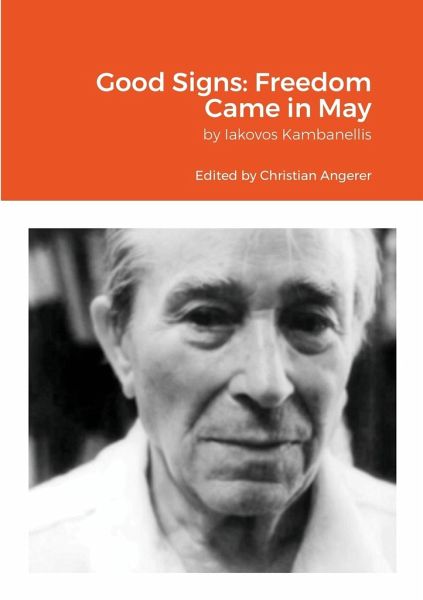
Good Signs
Freedom Came in May
Herausgeber: Angerer, Christian
Versandkostenfrei!
Versandfertig in 1-2 Wochen
19,99 €
inkl. MwSt.

PAYBACK Punkte
10 °P sammeln!
Iakovos Kambanellis wrote 'Freedom came in May' as a result of time spent in Mauthausen Concentration camp in Upper Austria, and the title refers to his unexpected release by American forces in May 1945. His personal memoir is of being arrested with no recourse in law, and of freight journeys between different camps. At the same time ordinary people completely ignored those heading for the camps as they led their normal lives. It was proof of Hannah Arendt's "banality of evil". The lack of human language for detainees, with people controlled as units or numbers made the inmates non-human, with...
Iakovos Kambanellis wrote 'Freedom came in May' as a result of time spent in Mauthausen Concentration camp in Upper Austria, and the title refers to his unexpected release by American forces in May 1945. His personal memoir is of being arrested with no recourse in law, and of freight journeys between different camps. At the same time ordinary people completely ignored those heading for the camps as they led their normal lives. It was proof of Hannah Arendt's "banality of evil". The lack of human language for detainees, with people controlled as units or numbers made the inmates non-human, with no family, occupation or personality, so they could be disposed of at will. Why does such evil occur, and why are there no monsters involved, only ordinary people? Hannah Arendt also spoke of the lack of language among the perpetrators of such evil; if one is unable to apply words of all-pervasive custom to one's actions, such as "no murder', one cannot form the pervasive custom in one's brain.














